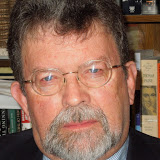Ronald Reagan, erroneously credited with causing the Soviet Union's collapse, built a winning Republican coalition by adding two groups of defectors from FDR's Democratic coalition -- racist white southerners (many of them evangelical Protestants outraged by the 1962 Supreme Court decision, Engle v. Vitale, that prohibited states from mandating prayer in public schools) and ethnic white northerners. He began his presidency with an assault on organized labor by firing some 10,000 unionized air traffic control workers who had gone on strike.
His administration also phased out defined benefit pensions for federal government workers by denying them to new employees. Reagan was doing to new government employees what private employers had done to their employees in the 1970s, after they secured "legislation in Congress allowing them to replace 'defined benefit' plans with 'defined contribution' ones" (Gerstle, p. 175).
Although increased international competition, especially from Japan, was the rationale cited for the change, it still constituted a massive theft from workers. Defined contribution plans "made pensioners dependent on their own funds"[and] unable to make claims on the employer for monthly checks that could continue for twenty to thirty and even forty years after retirement" (Ibid.).
Writing about such pensions in their book, Deaths of Despair and the Future of Capitalism, Anne Case and Angus Deaton observe: "The stock market rewards redistribution away from labor and toward capital. As we have seen, managers are increasingly incentivized to make this sort of redistribution happen. But there is another group that is less often discussed in this context: shareholders who hold 401 (k) retirement plans, or indeed anyone who has a defined contribution pension plan"[E]mployees who have defined contribution plans, invested in the market, have a direct interest in the market doing well, and, thus, are rewarded when wages fall or workers are replaced by automation. Yet those holding such assets are predominantly the people with college degrees, whose wages have been doing well. The replacement of defined benefit by defined contribution pension schemes has therefore given more educated and successful Americans an interest in less educated Americans doing badly" (Case and Deaton, p.240).
As Professor Gerstle notes, "More and more banks, commercial and investment, wanted to get their hands on these funds, upping the pressures for deregulating finance in the process" (Gerstle, p. 175).
Reagan followed up his assault on labor with an assault on inner city Blacks with the announcement in 1982 of a war on drugs. As Michelle Alexander notes, in her book titled, The New Jim Crow: Mass Incarceration in the Age of Colorblindness, the war on drugs was announced "before crack became an issue in the media or a crisis in poor black neighborhoods" (p. 5).
The neoliberal goal was to police and incarcerate Blacks caught using crack cocaine, thereby taking them off the streets and, thus, preventing them from disrupting the market. As Professor Gerstle puts it, "With this population removed from the economy, with criminality and physical insecurity thus purged from urban life, neoliberals could get on with the business of building a successful market economy" (Gerstle, p. 132).White users of powder cocaine not only enjoyed far less policing, but also greater leniency when caught. According to Professor Gerstle, Whites "were allowed to remain beyond the reach of the carceral state" (Ibid., p. 131). Thus, unlike many incarcerated Blacks, many White drug users did not lose their right to vote.
Writing about this particular form of Black voter suppression in 2010, Michelle Alexander wrote: "Forty-eight states and the District of Columbia prohibit inmates from voting while incarcerated for a felony offense...The vast majority of states continue to withhold the right to vote when prisoners are released on parole. Even after the term of punishment expires, some states deny the right to vote for a period ranging from a number of years to the rest of one's life" (Alexander, p. 153).
(Note: You can view every article as one long page if you sign up as an Advocate Member, or higher).





